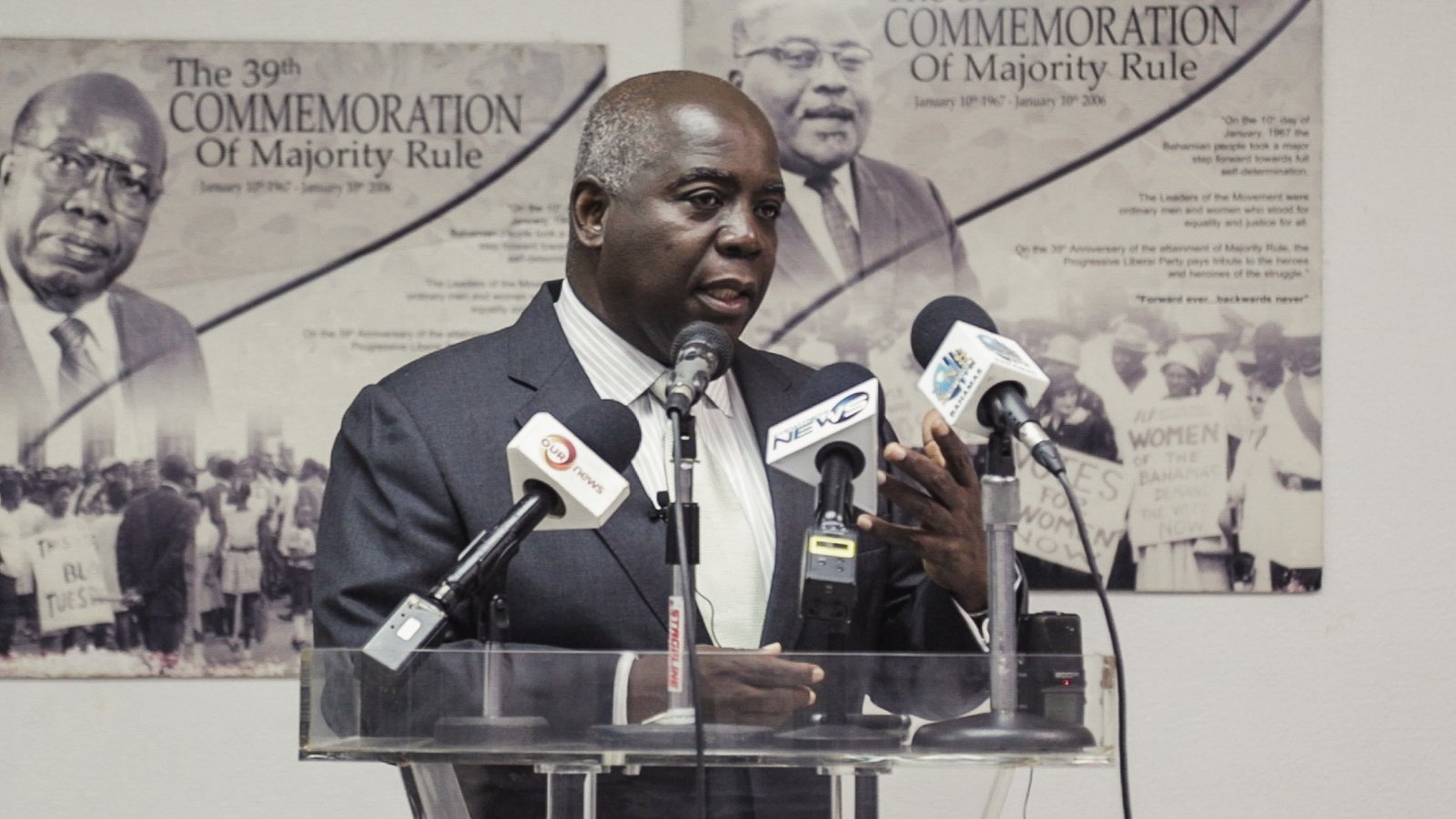Progressive Liberal Party (PLP) Leader Philip Brave Davis said Tuesday morning that his party will not support the Interception of Communications Bill (ICB) 2017, unless the provisions that make way for any “political appointee” to approve interceptions, are removed.
“The initial draft that was tabled by the Free National Movement (FNM) placed the authority with the Minister of National Security – that the Minister of National Security could authorize the interceptions of communications,” Davis explained.
“This was and still is unacceptable.”
“They sought and proposed an amendment to this section. The amended version now places the authority with the Attorney General, another political appointee. We still find this unacceptable.
“The spy bill will not get the support of the PLP.”
Last week, Minister of National Security Marvin Dames defended the government’s decision in keeping the ICB, and promised there will be no allowance for personal agendas of the bill.
He said, “This bill provides for the accountability, transparency and a paper trail.”
“There are absolutely no provisions in this bill for personal agendas. One cannot act outside of the law to go after political adversaries, spouses, sweethearts, or anyone else as a matter of fact, without there being consequences.
“If the description of spying was ever applicable, it was for what the previous administration tabled.”
Davis, however, argued that the new ‘Minnis administration bill’, goes against the intent of the original bill that was tabled by the former Christie administration, which he said, would put the Supreme Court in charge of authorizing interceptions.
“Let me remind you, the ‘We March’ leader Renard Henfield said, if they pass this bill, ‘We won’t ever be able to organize another march or protest.’,” Davis recalled.
“Ellsworth Johnson said, ‘This bill is frightening, and to my mind it is no more than a spying act.’
“What an ‘about face’, is it still a Spy bill? What an about face, moving from a ‘Spy bill’ to a necessary tool to combat crime. That’s how it’s being categorized.”
Attorney General Carl Bethel compared the two bills, calling the earlier bill an application to “any offence” including minor crimes, while the new bill would only apply to serious offences including murder, terrorism and drug trafficking.
On Monday, Rights Bahamas called on the government to shelve the bill, which the group deemed to be “invasive and oppressive”.
ICB 2017 states that a communications interception must be authorized by a judge, at the request of an authorized officer, which would otherwise be the commissioner of police, or a person authorized by the director of the Bureau of Investigation.






